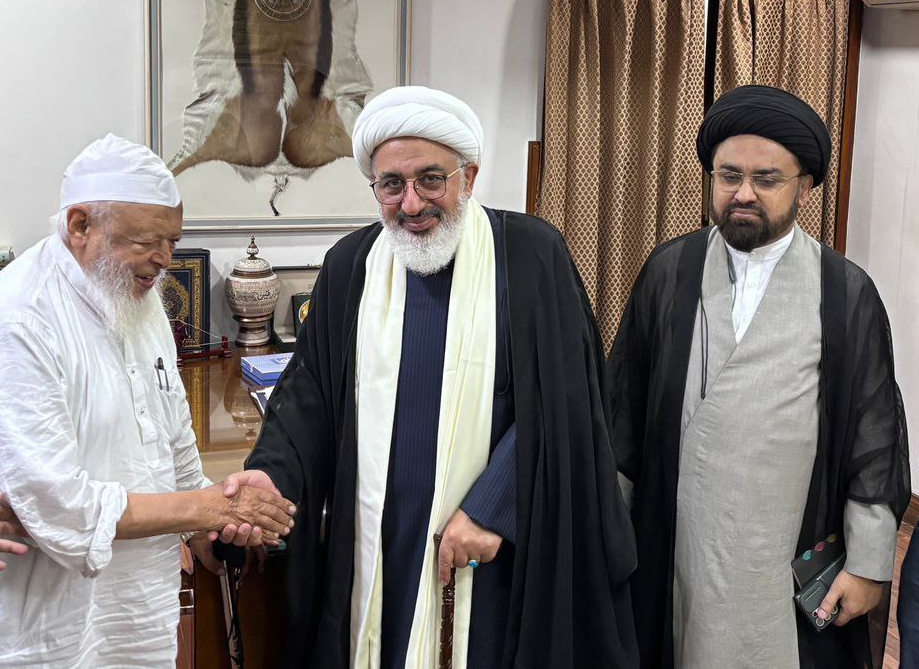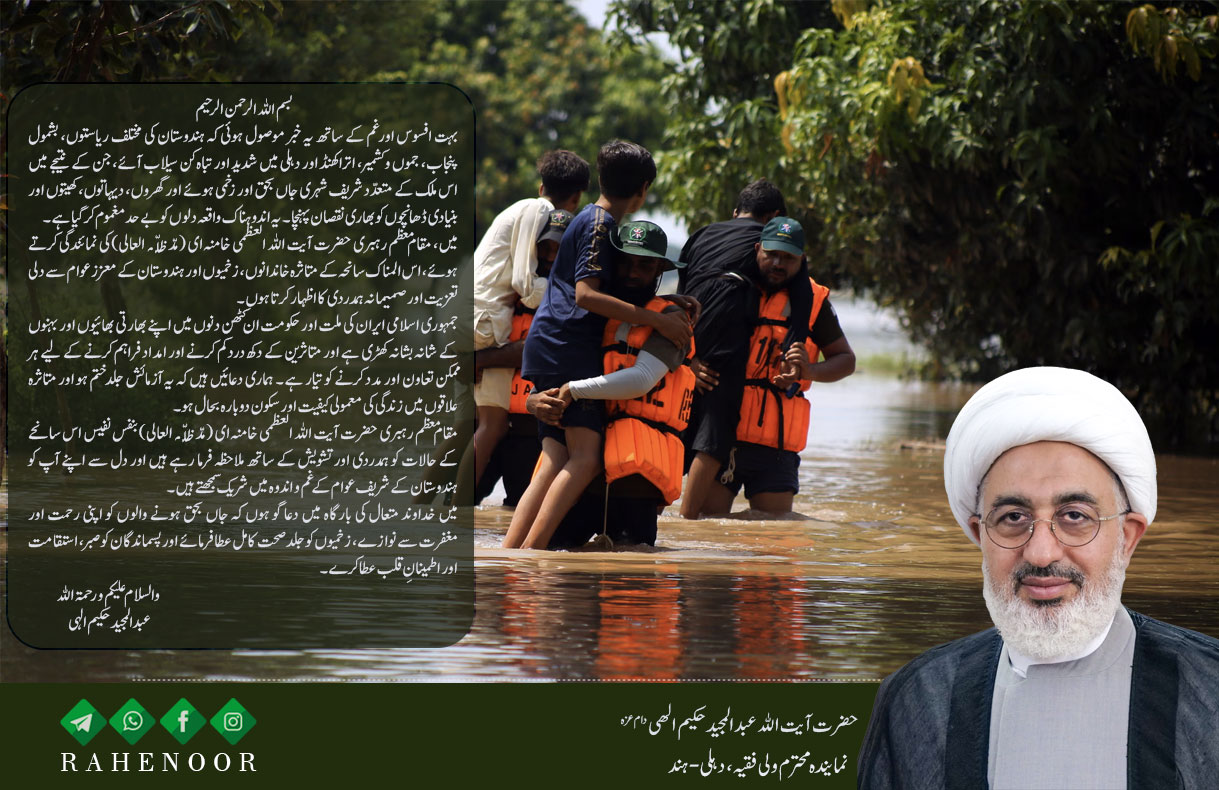Introduction
In Islamic teachings, religion is not limited to personal worship but also guides social, cultural, economic, and political life. After the Occultation of the infallible Imam, it is necessary for the community to be managed in a way that ensures the preservation of Islamic laws and values. For this reason, the concept of Wilayat al-Faqih—the guardianship of a qualified jurist—was introduced in Shia jurisprudence and has been recognized as an essential principle for maintaining order, justice, and religious guidance.
This article explores the meaning of Wilayat al-Faqih, its rational and scriptural foundations, the qualifications required of the jurist, and its role in safeguarding justice and religion in society.
Definition of Wilayat al-Faqih
Wilayat al-Faqih refers to the authority given to a qualified Islamic jurist to supervise and manage the affairs of the Muslim community in accordance with Islamic law. This leadership is a religious responsibility, ensuring that the community’s path aligns with Islamic principles and that people are guided toward spiritual growth and material well-being.
From a jurisprudential perspective, the jurist’s supervision ensures that the laws of Islam are applied, and decisions are made according to knowledge, justice, and the common good.
Rational Foundations of Wilayat al-Faqih
1. The Necessity of Preserving Religion and Society
Religion encompasses principles that lead to human salvation. Intellect confirms that without proper supervision, the application of religious principles may be compromised. Therefore, a leadership based on knowledge and ethics is necessary to ensure the survival of faith and social harmony.
2. Ensuring Justice
One of the major objectives of Islam is to establish justice in society. A jurist who possesses justice and piety can guide decisions in a way that protects people’s rights and reduces corruption and oppression.
3. Implementing Religious Laws
Islamic rulings cover worship, transactions, family matters, and community relations. Without proper leadership, the application of these rulings may face challenges or be implemented incompletely.
4. Promoting the Public Good
Rational thinking emphasizes that actions should lead to the welfare of society. The jurist must consider the best interests of the people in decision-making while adhering to Islamic rulings.
Scriptural Foundations of Wilayat al-Faqih
1. Quranic Verses
The Quran instructs believers to obey leaders appointed to uphold religious law:
-
“O you who believe! Obey Allah, obey the Messenger, and those in authority among you.” (Quran 4:59) – emphasizes obedience to lawful leaders.
-
“And their affairs are conducted through mutual consultation.” (Quran 42:38) – highlights the importance of collective consultation in governance.
2. Sayings of the Imams
The Imams of Ahlul Bayt (peace be upon them) consistently emphasized the importance of leadership to preserve the religion and ensure justice. For example, Imam Ja‘far al-Sadiq (peace be upon him) stressed that without righteous leadership, religion and society are endangered.
3. Scholarly Consensus
Prominent Shia scholars such as Sheikh al-Mufid, Allama al-Hilli, Sheikh al-Tusi, and Imam Khomeini (may God have mercy on him) have elaborated on the necessity of Wilayat al-Faqih. Their agreement reinforces the legitimacy and importance of this principle.
Conditions for the Qualified Jurist
For the jurist to be entrusted with leadership, the following qualifications are essential:
-
Knowledge of Islamic law – mastery of jurisprudence and the ability to interpret rulings.
-
Justice and piety – moral integrity and commitment to ethical behavior.
-
Capacity for leadership – sound judgment and governance ability.
-
Ability to protect society – readiness to safeguard security and well-being.
-
Consideration of public welfare – making decisions based on what benefits the community.
The Importance of Wilayat al-Faqih in Preserving Islam and Social Values
-
Preserving and spreading religious rulings
The jurist safeguards the implementation of Islamic laws, ensuring that religious guidance is integrated into daily life. -
Enhancing ethical standards
Justice-based leadership promotes moral conduct and responsible social relationships. -
Advancing scientific and educational development
Support for religious and academic institutions helps nurture intellectual and cultural growth. -
Maintaining social security
Proper governance fosters peace and reduces conflicts within society. -
Improving economic and social well-being
Policies based on justice and religious principles ensure fair resource distribution and collective prosperity.
The Role of the People
In the Islamic governance system, the people participate in choosing qualified representatives, such as through the Assembly of Experts, who are tasked with selecting and supervising the jurist-leader. This process ensures that governance remains accountable and aligned with religious and social interests.
Conclusion
Wilayat al-Faqih is a principle rooted in Quranic injunctions, narrations from the Ahlul Bayt, and scholarly consensus. It provides a framework for leadership in the absence of the infallible Imam, ensuring that religious rulings are upheld, justice is maintained, and the community’s spiritual and worldly needs are met.
A qualified jurist is entrusted with safeguarding faith, implementing laws, and protecting the people’s welfare. With this leadership, society can flourish both morally and materially, striving toward both individual and collective salvation.
References
-
The Holy Quran – verses related to obedience and consultation.
-
Al-Kafi – Book of Leadership and Imamate.
-
Tawhid wa Wilayah – by Imam Khomeini (may God have mercy on him).
-
Sharh Chehl Hadith – Imam Khomeini (may God have mercy on him).
-
Wasail al-Shia – Sheikh al-Hurr al-Amili.
-
Fiqh al-Ridha – Sheikh al-Mufid.
-
Constitution of the Islamic Republic of Iran (1980).






Your Comment